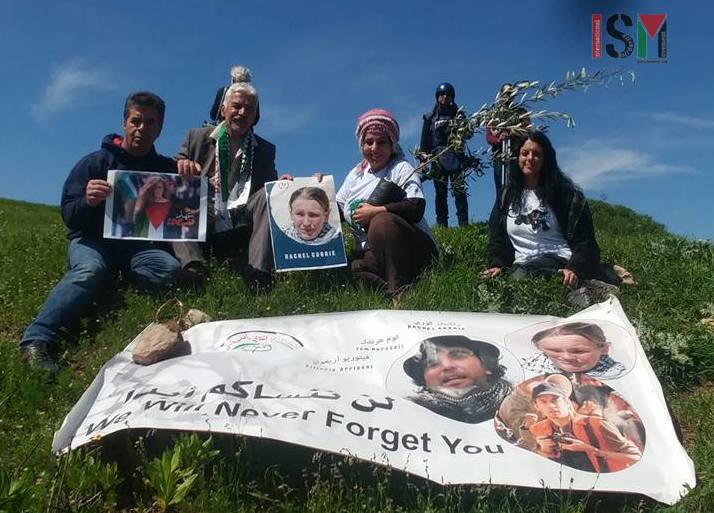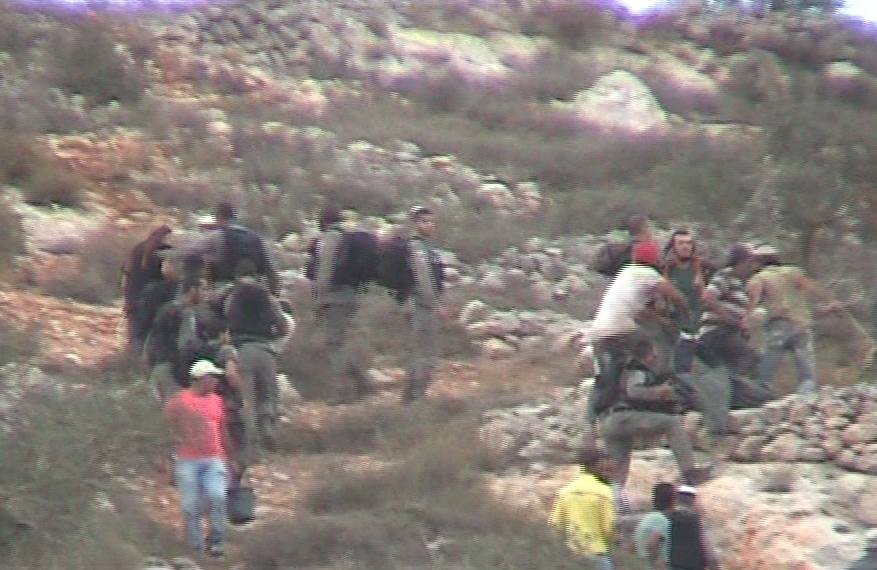Tag: Burin
-
Palestinian and International activists plant olive saplings on village land ordered for confiscation by Israel in Burin
17/03/2018| International Solidarity Movement Palestinians and International activists successfully planted dozens of olive saplings in the north of West Bank in the village of Burin near Nablus. Palestinians and Internationals together laid pictures of prominent activists in front of the planted saplings, some of these activists were killed by the Israeli army others are Palestinian…
-
Settlers of Yitzhar set fire to olive fields and attack farmers the next day
15th November 2017 | International Solidarity Movement, Nablus team | Huwarra, Occupied Palestine Israeli settlers of Yitzhar, set fires in two places in Palestinian olive fields around their illegal outposts, and attacked a group of farmers a day later, under the eyes of around 30 border police, present at the site. On Sunday 5 November,…
-
Palestinians banned from land as Route 60 expands
17th november 2015 | International Solidarity Movement, Huwwara team | Burin, occupied Palestine On monday morning, Mahmoud Yasser Eid, a 22 year-old palestinian from the village of Burin, was stopped by the Israeli forces as he went to pick olives with his mother, near the Huwwara checkpoint. The land, that the family has been harvesting…



